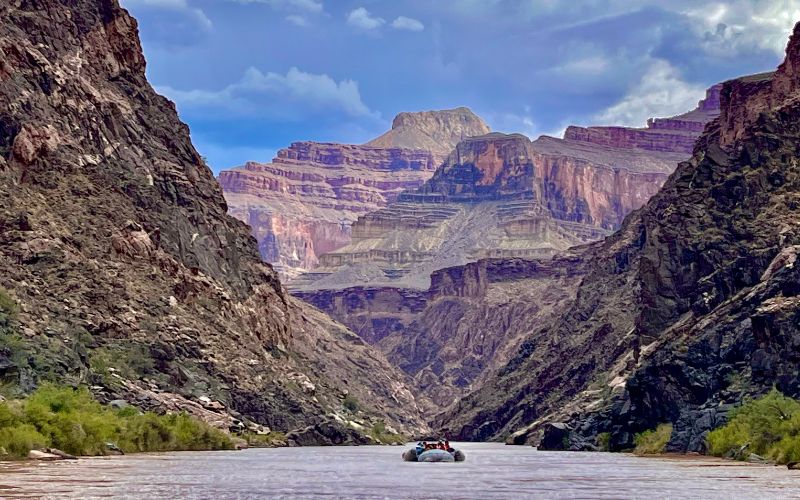
- Details
- By Native News Online Staff
The Grand Canyon Regional Intertribal Intergenerational Stewardship Expedition (RIISE) invites Native youth from ages 16-20, identifying as members of affiliated tribes of the Grand Canyon, to apply for its third annual, free, nine-day Colorado River rafting excursion through the Grand Canyon, from July 15-23. '
Organized by the Grand Canyon Trust and Grand Canyon Youth, with support from Arizona Raft Adventures and Grand Canyon Expeditions, this immersive journey will accommodate up to 18 young leaders, offering them the opportunity to explore the Grand Canyon alongside Indigenous knowledge keepers, river guides, and environmental advocates.
“Our goal is to bring young Native leaders back to their ancestral lands to learn from their elder tribal relatives the histories and stories of the Grand Canyon,” said trip facilitator Amber Benally of the Grand Canyon Trust, in a press release. “Our people were forced from their homelands to make room for Grand Canyon National Park, and too often I hear our young people say, ‘there’s nothing there for me’ or ‘I don’t belong here.’ But we do belong here. We are still here. And sharing knowledge and connecting with the canyon and with each other is an important way to remember who we are as Indigenous people.”
Through storytelling and dialogue, participants will gain insights into the past, present and future of the Grand Canyon. Benally stresses that while the journey promises adventure, its primary objective is to empower Native youth to shape the Canyon’s future effectively.
Participants should be comfortable with outdoor activities such as camping and hiking. The expedition covers all expenses, including transportation, meals, rafting gear, and camping equipment. Participants will undergo six weeks of pre-trip online education, preparing them for the expedition while delving into environmental justice issues specific to the Grand Canyon region.
“The canyon has taught me that challenges are part of the journey,” said 2023 RIISE participant Tryston Wakayuta (Hualapai and Hopi) in a press release. “Locations and situations constantly change but the mission has always been the same: to keep changing and growing and learning different perspectives. Trips like this remind me to be great through our cultures and traditions.”
Applications for RIISE 2024 are open until May 4, 2024. Interested individuals can find further details and access the application here. Accepted applicants commit to six weeks of pre-trip online learning and the full river trip from July 15-23, 2024.
More Stories Like This
Bard College Center for Indigenous Studies (CfIS) Hosts Annual Symposium With Keynote Speaker Miranda Belarde-Lewis on March 9–10American Indian College Fund Announces Spring 2026 Faculty Fellow Cohort
Navajo Nation Signs $19 Million Diné Higher Education Grant Fund Act into Law
Dr. Shelly C. Lowe to Be Inaugurated as IAIA President March 26–27
Tlingit Language Courses Expand for Students to Learn With Families At-Home
Help us defend tribal sovereignty.
At Native News Online, our mission is rooted in telling the stories that strengthen sovereignty and uplift Indigenous voices — not just at year’s end, but every single day.
Because of your generosity last year, we were able to keep our reporters on the ground in tribal communities, at national gatherings and in the halls of Congress — covering the issues that matter most to Indian Country: sovereignty, culture, education, health and economic opportunity.
That support sustained us through a tough year in 2025. Now, as we look to the year ahead, we need your help right now to ensure warrior journalism remains strong — reporting that defends tribal sovereignty, amplifies Native truth, and holds power accountable.
 The stakes couldn't be higher. Your support keeps Native voices heard, Native stories told and Native sovereignty defended.
The stakes couldn't be higher. Your support keeps Native voices heard, Native stories told and Native sovereignty defended.
Stand with Warrior Journalism today.
Levi Rickert (Potawatomi), Editor & Publisher


